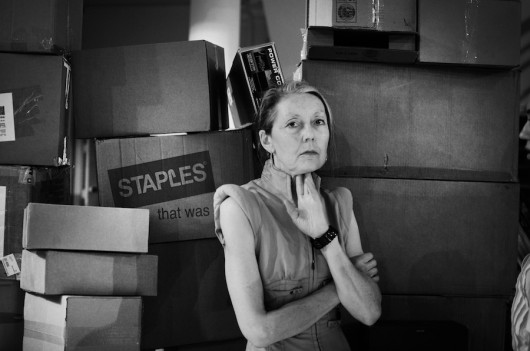Željka Marošević interviews Anne Carson for The White Review:
(…)
I interviewed Carson over a period of six months via email. As an interviewee, she was patient, prompt, and unusual. Her emails came in lower case, and I was always addressed by my initials. While Carson responded to some questions with paragraph-long answers, other questions would be answered in a word, or not at all. Sometimes an explanation would follow. ‘that thinking is over,’ read one email, ‘take it somewhere else. remember Catullus.’ The interview was a challenge to the expectation that a writer should explain themselves beyond the words they’ve already written. I began to see the absurdity of the interview form, where a writer is asked to endure our assumptions and validate our interpretations. I thought of the way Carson describes Joan of Arc’s interrogation in FLOAT: ‘They prodded and poked and hemmed her in. Joan despised the line of inquiry and blocked it as long as she could.’
In the end, it was Carson who freed us. The interview was over, I had exhausted all my lines of inquiry, and then an email arrived. Its subject line was: ‘re self study’, followed in the body text by ‘(how it all begins to sound a bit false)’. Below, she had written the final lines of Seamus Heaney’s poem ‘Making Strange’:
… A chaffinch flicked from an ash and next thing
I found myself driving the stranger
through my own country, adept
at dialect, reciting my pride
in all that I knew, that began to make strange
at that same recitation.
Q
THE WHITE REVIEW
— FLOAT picks up many threads started in earlier books. Despite its variety there’s a wholeness to your work, as though any line in any poem might connect to any other elsewhere (which is why a box makes sense as a container). Do you feel like you’ve always had the same broad concerns?
A
ANNE CARSON
— I’m not sure about broad concerns – how broad? Most of my concerns seem to me very narrow – the shade of difference between two synonymous adjectives in a sentence, whether or not to make an eyebrow with vertical or horizontal lines in a drawing, etc.
The rest is after-shock.
Q
THE WHITE REVIEW
— So do you feel that you’re always working at a micro level?
A
ANNE CARSON
— Or perhaps working slightly behind my own ‘broad concerns’. They form ahead of me in big waves that crash down when it’s too late to save myself.
(….)


